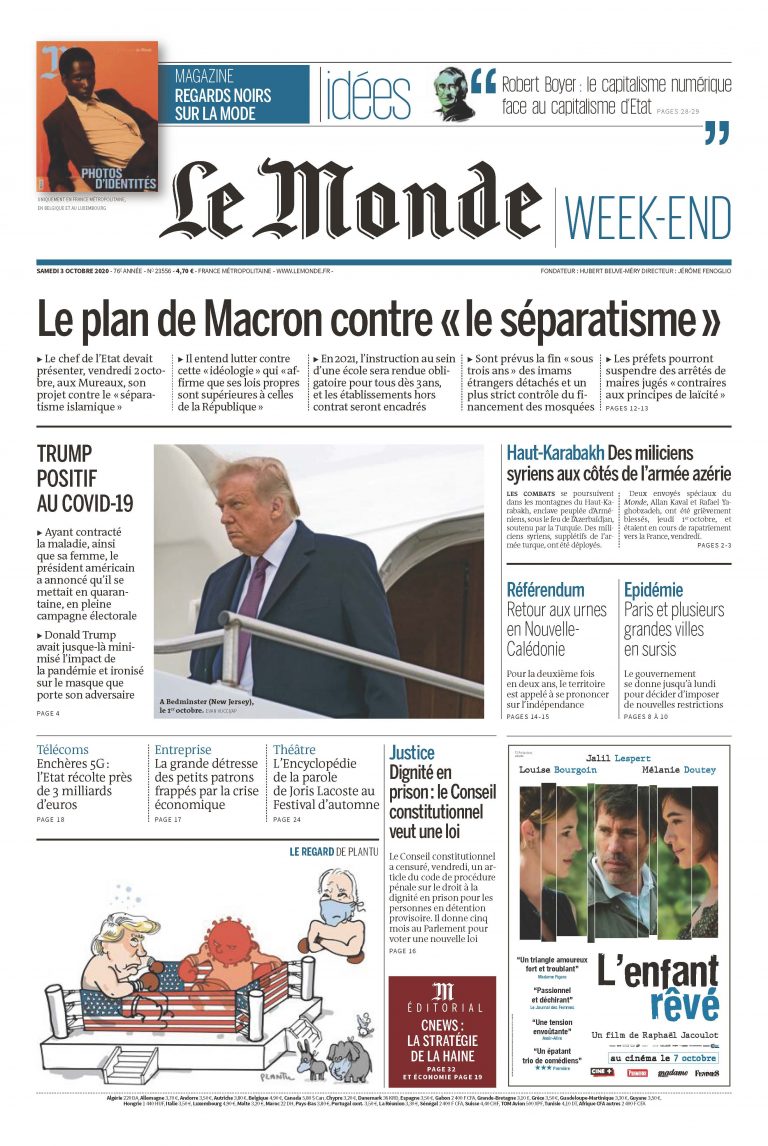- Les matins de l’Economie, France culture, Pour enrichir et approfondir les questions d’actualité, deux séquences d’invités : la Question du jour à 7h13 que Guillaume Erner posera au meilleur expert du sujet, Robert Boyer. Le grand thème du jour qui occupera, en deux parties, le cœur des Matins de 7h40 à 8h00 et de 8h20 à 8h45.le 13 janvier 2021.
Powerpoint et zoom Présentation visio-conférence pour le DEA – EHESS, 2 décembre 2020
l’enregistrement en mp4 (y compris le tâtonnement initial, celcommence vraiment à la minute 13)
Encuetros de Geopolítica y Economía Política Internacional en la Universidad Nacional de Moreno« , El rol de las finanzas en la reconstrucción de la pospandemia.MIERCOLES 11/11/2020(Argentina).
 La pandémie, un accélérateur impitoyable de transformations du capitalisme, Xerfi Canal a reçu le 27 octobre 2020 Robert Boyer, économiste, pour parler de la transformation du capitalisme liée la pandémie. Une interview menée par Laurent Faibis
La pandémie, un accélérateur impitoyable de transformations du capitalisme, Xerfi Canal a reçu le 27 octobre 2020 Robert Boyer, économiste, pour parler de la transformation du capitalisme liée la pandémie. Une interview menée par Laurent Faibis
 Menaces sur la démocratie : économie, relations sociales, libertés publiques, Xerfi Canal a reçu le 17 novembre 2020, Robert Boyer, économiste, pour parler de la crise de la Covid-19. Une interview menée par Laurent Faibis.
Menaces sur la démocratie : économie, relations sociales, libertés publiques, Xerfi Canal a reçu le 17 novembre 2020, Robert Boyer, économiste, pour parler de la crise de la Covid-19. Une interview menée par Laurent Faibis.
La-transmutation-des-capitalismes-dans-la-crise, Xerfi Canal a reçu Robert Boyer, économiste, pour parler de l’intégration européenne. le 30 novembre 2020. Une interview menée par Laurent Faibis.
Cette fois-ci c’est bien l’Europe à quitte ou double Xerfi Canal a reçu Robert Boyer, économiste, pour parler de l’accélération de la transformation des capitalismes. le 10 décembre 2020. Une interview menée par Laurent Faibis.
 Comment sortir du sur-endettement ? les leçons de l’histoire, Xerfi Canal 15 décembre 2020, Robert Boyer, économiste, invité pour parler de la crise de la Covid-19. Une interview menée par Laurent Faibis.
Comment sortir du sur-endettement ? les leçons de l’histoire, Xerfi Canal 15 décembre 2020, Robert Boyer, économiste, invité pour parler de la crise de la Covid-19. Une interview menée par Laurent Faibis.
Entretien par Antoine Reverchon, Le Monde, Idées, samedi 3 octobre 2020, p. 28-29
Revista Encuentros, Universidad Autónoma del Caribe. Vol. 18-3. CAPITALISMOS Y ESTADOS EN AMÉRICA LATINA: NUEVAS APROXIMACIONES
Editores/Coordinadores: Esteban Torres, Juan Pablo Gonnet, 2020, p. 100-116 (Espagnol)
Tribune, Idées : Coronavirus et pandémie de COVID-19, Le Monde 27 mars 2020,

 Economistes et politiques totalement déstabilisés par la Covid-19.
Economistes et politiques totalement déstabilisés par la Covid-19. 

